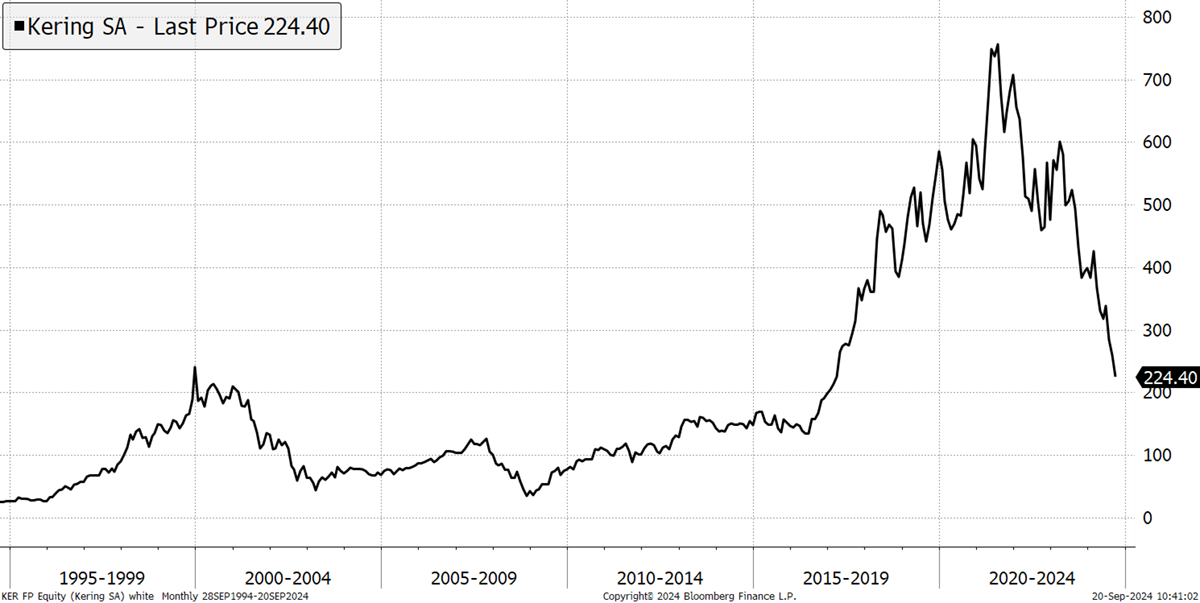This week saw interest rates fall, and the hope is that this preemptive 0.5% cut from the Fed will thwart a recession. This is the start of a cutting cycle, which is likely to continue with rates below 3% by the end of next year. At least that is the current forecast.
While that’s great for us mere mortals who can look forward to locking in cheaper mortgages, please spare a thought for the rich. Not only did rates fall, but Gucci’s parent, Kering, did too. Kering’s shares are down 70% since 2021 and have failed to participate in the post-2022 bull market. The rich must be tightening their belts.
Gucci Discounts

But it’s not just the rich that buy luxury goods. Many people see them as aspirational purchases, and the message from the luxury goods sector is that the good times are over. Kering’s revenue for the first half of 2024 was down 11% on last year, with “market conditions unsupportive in most regions except for Japan [where there is a tourism boom due to the cheap yen].” This means that the marginal buyer has cut back on luxury goods, which is the opposite of what caused fashion houses to thrive in the first place. Wealth creation has slowed.








